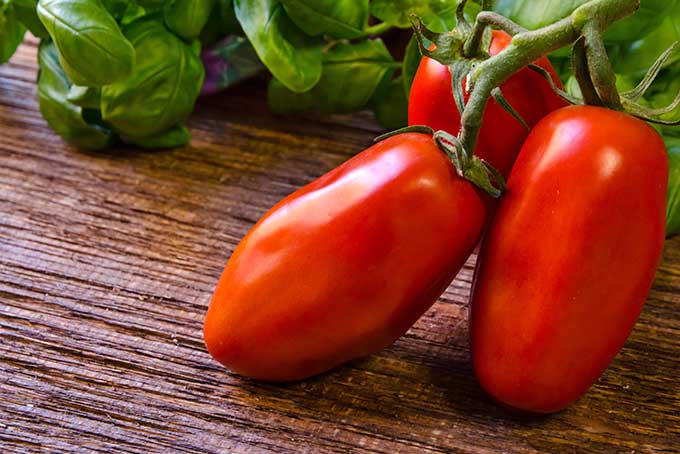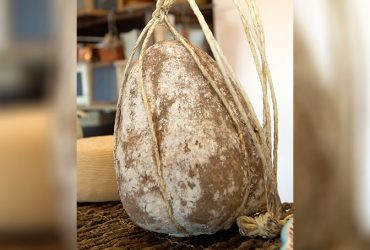San Marzano tomatoes are these thin, pointy, sweet plum tomatoes that are grown primarily in the Campania region of Italy, at the base of Mt Vesuvius, in the Agro-Nocerino area. They are cultivated in the soils of the communes of Naples, Salerno and Avellino and are considered essential ingredients for an authentic Pizza Napolitana.
So what makes them special? These tomatoes are plum tomatoes, but they are typically more slender and oblong, having a firm flesh. They have fewer seeds and less water content, as well as a lower amount of sugar and acid. This unique characteristic, along with their intense red colour and skin, which peels easily, distinguishes these from other plum style tomatoes. During cooking, the skin practically dissolves, mixing with the pulp, and contributing to the unique flavour. San Marzano sauce is thicker, with a more concentrated tomato flavour, creating a distinctive combination of both sweet and tart flavours.
In order to grow these tomatoes, one requires areas with good irrigation. It is also well known that these crops don’t thrive in hilly topography or extreme temperatures. This is why San Marzano in Campania is ideal for the cultivation of these tomatoes. The soil in this area near Mt Vesuvius contains volcanic ash, phosphorous and potassium, and the climate is temperate with high humidity much of the year. Harvesting of these tomatoes begins in August and continues until the end of September or later. They are picked only after they have matured and are very ripe, and the hand-picking occurs usually in the evenings when the sun is setting.
The Italian government has granted “denomination of protected origin” (DOP) status to San Marzano tomatoes, and there are strict cultivation guidelines. Requirements include that the tomatoes be grown vertically in rows, with fruit not touching the ground, and harvested by hand. They must be cultivated in the Sarnese-Nocerino area and the yield allowed per acre is also regulated. The plants are allowed to be pruned and clipped, although forcing is not allowed.
So next time you are out shopping and looking for canned San Marzano tomatoes make sure to look for a DOP number or label that proves its authenticity. Today the stores are rampant with fake products with labels that claim to be original San Marzano grown tomatoes. But unless the DOP label is present, these products are not authentic San Marzano tomatoes, and you will notice a distinct difference in the taste.




